|
Well, no one saw that one coming did they, certainly not either Sharon or myself who were both on a weeks holiday which should have taken place from the 21st of March this year; respectively our first breaks since the Christmas holiday. Naturally we both had to abandon our plans on the Monday and head back to LionMouth to assess the situation and put social isolation measures in place. Most of the day Care Service Users, who are our main priority and concern did not turn in from that Tuesday, and quite understandably so. Those in care homes needed to keep themselves and the other residents safe, and those living with their parents generally had vulnerable family members to protect. All staff apart from Sharon and myself were advised to stay at home and we shut the site to the public. This way we could keep the site clean and a free as possible from infection being invited onto the site. It just happened to be the busiest time of the year in the garden didn't it, so we were both madly sowing seeds, taking cuttings, pricking out and potting on. The lawns and meadows needed mowing on a weekly basis and the 'bits in between' strimming. The vegetable terraces had to be leveled, raked and planted up; all the routine work that would normally have been done by twenty to thirty people on a daily basis. On top of that we had fallen trees that needed to be chain-sawed up, fences erected to keep opportunist quad bikers, dog walkers and bored gangs of youths from tearing up the woodlands. We even had to put the shutters in the fish pass to get the water to flow over the weir as families were picnicking on the dam wall. We just desperately wanted to keep the site isolated, free of people and away from any potential viral vectors. Luckily the weather was in our favour. The sun seemed to shine for months and we undertook most of the work outside. The bench overlooking the terraces became the potting bench and Flynn took the opportunity to sit and watch the gates, waiting for everyone to come back. He also got through two paddling pools, biting out the bottom of his first one, and spent many hours chasing sticks in the river to keep cool. Unfortunately the good weather also meant that watering was a mammoth daily task. Some of the staff did volunteer to carry this out over the weekends though which did mean that we got Saturday and Sunday off..phew! With no income coming in from tea rooms, plant nursery or day care service users (at that time) we explored all our options. We quickly discovered that we fell between the stools when it came to any of the government grants (no surprise there), so were fast on the keyboard to get some funding applications in. Fortunately we were quite successful with several applications and were soon able to set too in buying arts and craft supplies and everything that we needed to be able to send out practical activity packs to all of our service users, and remain in weekly phone contact. Just to up our work load we decided to start up a plant delivery service. Well, it was no good just creating all these lovely plants for them just to sit on the nursery benches. This would bring some of the staff back into action. None of them had been idle either during this time. They had all been improving their work related learning, gaining meaningful qualifications on line; first aid, infection control, PPE, drug and alcohol abuse (how to spot and assist, not carry out!), pest control and food hygiene to name but a few. Sharon and myself took all the orders and made them up then carried them down to the bottom car park where two staff members would pick them up and go out on their delivery rounds. This worked a treat and suddenly we saw our beloved plants marching out the gates to their new homes. Herbs in particular were very popular this spring. Then we had demands for 'gate pick ups', which again proved popular. Not being particularly brilliant with technology, websites and social media, plus the added hassle that our phone line reach was limited and any mobile signal abysmal we think we managed rather well. Yes, we missed a few calls; maybe we were working down on the veg terraces, in the woods or on the meadow, and there were times when we had to constantly ring people back up as the handset had wandered just too far out of reach, but the orders have been consistent and encouragingly numerous. Now we have reached the calmer times in the garden. The veg are steadily growing, requiring just a tickling weed and hoe about. Yes, the grass still continues to grow, and cutting-taking is a year round job but there is an easement in haste. Rewards are forthcoming in the way of produce. Broad beans, peas, broccoli, sweet tangy tomatoes, the first of an inundation of courgettes and squash, berries and even honey. There may be light on the horizon as to when the service users may be able to come back. There are discussions with the powers that be as to how this may happen, who it might involve and for how many days. We have put our measures in place. We have moved their tables apart, bought the hand sanitizers and floor markers. The guys have all done their part though. They have all stayed in, stayed safe and stayed clean. Hopefully LionMouth will soon once again be filled with the sounds, sights and smells of fun-filled activity. Until then Sharon and myself shall relish and make the most of the peaceful sounds of nature that has prospered in their absence. It has been weird, it has been tough, it has been challenging but it has also been restorative and rejuvenating in many ways, and I have re bonded with the wild spirit of LionMouth.
0 Comments
Well, we only went and won, and today we received the official trophy and certificate from the Rural Business Awards for the best social enterprise, charity or community interest company in the whole of the North of the UK. What a beautiful acknowledgement of all the hard work that the staff, volunteers and centre users undertake on a daily basis here at the LionMouth Rural Centre. Proud of each and every person who takes the time and puts in the effort to help this place grow and glow!
Deep in the heart of the LionMouth site sits a large puddle of murky water. We call it the Monks Pond, as it was once used by the trainee priests (not Monks at all) from Ushaw College just up the hill as a swimming facility. Pictures show it with diving boards and changing rooms and it was apparently fully tiled out at one stage. Over the years the bricks from the tumbled down changing rooms have been taken and used for other buildings, nature has reclaimed the square edges and decades of fallen leaves have silted the pool floor. Today it sits as a stagnant pond surrounded by tall willows and blackthorn. In more recent times, moorhens have nested on it and frogs have been spawned there, but this year the activity has slowed right down. We have decided that it is time to start taking remedial action. The first step was to involve the Environment Agency who gleefully came and took and array of samples. With Oxygen levels nearly zero and pond weed, water hog lice and leeches being the main inhabitants we were worried about inflow from the fields and land drains up above, and had sought out expert advice on how to reduce this from The Wear Rivers Trust. However, it seems that the stagnation has just been a result of time, mud and leaves, and nothing chemical or algal.
Hopefully, all our frogs, toads, moorhens and much more wildlife will quickly make their way back to our Monks Pond.
We have been lucky enough to secure funding to help get our service users and volunteers (and staff) more active, mobile and into different sports. They have always appreciated a little walk out after out big Foody Friday, but this will give them the opportunity to take part in yoga, tennis, football, rounders, orienteering, green gym exercises, and much more.
Well, the growing year may have got off to a slow start but boy did it make up for it in bounty. We grew over 24 varieties of tomatoes this year, supplying the tea rooms and Foody Friday all summer long, from the small Golden Sunrise treats that popped like sweeties on the tongue to the heavy ox heart shaped Ukrainian black that melted under the grill. We have gorged and grazed on kale, broccoli, cabbages, beetroot, turnips, onions, squashes, beans, beans, beans and pumpkins (big pumpkins). We even had an enormous crop of big and juicy sweetcorn this year. The sprouts, spinach and purple cabbage still sit in the ground waiting for their turn at the dinner table. Apple juice Rec currant Cordial Plum Jam The fruit side of things was even better. Shrubs and trees dripped with fructose filled treasure right from late summer through up to now. We didn't waste a thing. Jams, jellies and cordials were made from black and red currants, bramble, raspberries, strawberries. Even the tart crab apples, sloes and quinces were magically transformed into spreadable delights. Grant funding provided us with a new toy this year; a fruit press, which we put to good use with the extensive range of apples we have on site. Many of these we acquired as a result the closure of Whitworth Hall Walled gardens a few years ago. The Northern fruit group were worried that the large collection of rare heritage apples would be lost, and managed to take graft cuttings, which we have since grown on here at Lionmouth, alongside our existing mature trees. Processing raw honey by hand The finished product The bees were early however, and by April had already presented us with a hive full of honey. We squash this out by hand, which admittedly doesn't get it all out, but it does mean that all the beneficial properties remain packed inside the jar.
And that takes us to Halloween, the official end of the growing season and just about everything harvested for the winter. All that needs doing now is to turn these beauties into something terrifying; The Snakeshead Fritillary (Fritillaria meleagris)
"The fritillary looks like something exceedingly choice and delicate and expensive, which ought to spring from a pan in a hothouse, rather than share the fresh grass with buttercups and cowslips.” So said Edwardian gardener and writer Vita Sackville-West, and how right she was! A little Moroccan lantern, dangling from an elegant green hook – who could fail to be both charmed and wowed by the exotic-looking Fritillaria meleagris? The sulky maiden, leper’s lily, frog’s cup, guinea-hen flower, or the snakeshead fritillary, as we know it today, this beauty is a small marvel of nature. At about Easter time, the young flower bud - wrapped tightly by its narrow leaves - pushes its way up, the nose of a small snake appearing in the meadow or the garden border (it is really at this stage that it looks most like its common name). As the stem lengthens, it arcs over elegantly to ensure that the all-important nectaries within the nodding bells are kept protected from the rain. After pollination, the stems straighten back up again and lengthen so that the seed pod is held high enough to scatter its seeds as far as it can. The extraordinary chequered pattern on its petals - like a slightly irregular chessboard - draws gasps, but it turns out we can rely on the late great code-breaker Alan Turing for an explanation! In 1952 Turing wrote an article explaining that this sort of pattern (actually not uncommon in nature) comes from the interaction of two chemicals: an activator and an inhibitor. The two work together and against each other, and the blobs of colour are repelled by their opposite. The snakeshead fritillary is a small beauty, flowering at a height of about 15-20 cms, but its modest size belies its enormous amount of DNA. This wee plant contains more than 15 times as much as humans do, and if unravelled, its genome would stretch over 30 metres. That’s some snake! *** Fritillaria meleagris is now available from our plant nursery, alongside many other little pots of Spring treasures. Priced at £2 each, or 3 for £5, what better way to kick start your Spring?! We are open Monday to Friday, 9-4pm, and have a tearoom on site selling delicious home-made quiches, scones, cakes etc. The beast from the east landed in the Deerness Valley (and pretty much everywhere else) this week. Since the snow must go on, we rose to the challenge! The Asda delivery was sledged down into Lionmouth and thankfully Flynn was on hand to resuscitate a fallen angel [that'll be you, Sharon], sadly not with brandy from a mini barrel around his neck, but with a good old lick! Lionmouth does look beautiful in the snow at the moment. While the weir has frozen over, the salmon pass has continued to flow - as inspected by that dogged dog - atta boy, Flynn! Normal service resumes Monday, we hope!
Or Happy New Year! We are kicking off the year with a building project... how do you like it?
Don't worry, these are definitely the BEFORE pictures, showing the back of the current tearoom. Work is now underway to build a conservatory extension in this space. Once done, we will "break on through to the other side" and experience enlightenment... Or maybe just some more light... Either way, we are going to put up lots of bird feeders on the bank view and are really looking forward to the light flooding through from front to back. An integral part of this project is the expansion of the kitchen work space. We now have a fully-equipped dedicated kitchen which staff and clients are using to prepare all sorts of very tasty scones, cakes, quiches etc! The tearooms are fully open during this building project, so do keep popping in. We are hoping that the extension will be complete in a couple of weeks' time, so watch this space! Last week we started a six week Healthy Living Course, delivered by Steven and Ellie from the Councils' Well Being Team. They showed us all how to prepare a tasty stir fry using only healthy ingredients. Some of the lads took part in preparing it, but everyone took part in the tasting! The frivolity was followed by some serious questions about what type of food people had eaten during the last week. Now, I know at least two people expanded (or rather under estimated) the truths on some of the dietary questions.. Foody FridayThis weeks Foody Friday was truly a team effort, especially the pudding. Still on the post Christmas 'slightly healthier' theme we had a veg filled ham broth (with some herby dumplings on top for those who needed some naughty indulgence), followed by a strawberry cheese cake (made from cream cheese and no sugar, and a butter free base). Winter WoodworkPeople ask us what we do during the winter, when we cant get outside into the garden. Well, that's when we bank up the fire in the workshop and get down to some serious woodwork. This week we have been concentrating of bird and bat boxes to fill our woods with, as the creatures will soon be starting to nest for the year. We, do also manage to jump outside during gaps in the rain and snow, and warm up the muscles by digging over and sorting out problem beds and borders. This week it was the strawberry patch, which we weeded and covered over ready to replant the plants back into (after they have had their runners taken off for propagation) Unfortunately the council put up a road closed sign at the top of the road that leads to the centre this week for work to some new houses several miles further up the road, so we didn't have many visitors to the tea rooms (which was as always filled with stunning home made cakes) or the plant nursery (where we have beautiful winter bulbs for sale). Happy to report that the signs were removed on Saturday (which was quite fortunate as the Broadgate Ford flooded Saturday afternoon, which would have meant all the residents and business's unable to go anywhere . Last week we did what all good horticulturalists do; we dug out all the good, well rotted garden waste from compost bays number 3 and 4 and barrowed it onto the vegetable terraces. Our thirsty produce will have plenty of crumbly nutrients to grow big and strong on this summer. Bays 1 and 2 were turned over and put to bed for the year. CARTOON FUN In the art room there was much hilarity as Jackie had the sketch app going, and everyone found themselves turned into multicolored cartoon images. We also started designing the images that we are going to use on the decorative tiles in the newly painted 'easy access' toilet. It going to have a fishy theme.... |
AuthorBrigid Press Archives
July 2020
Categories |

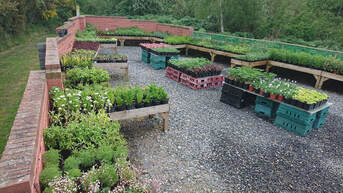
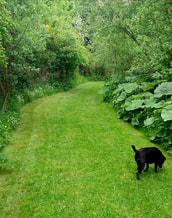
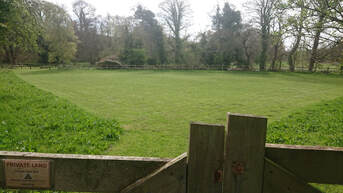
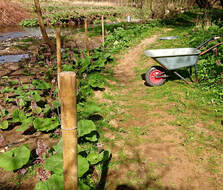


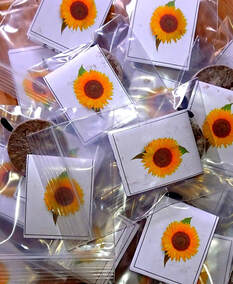
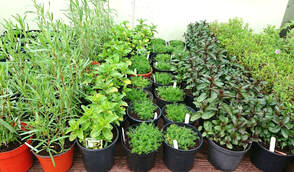
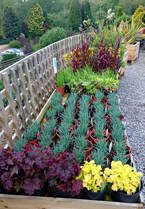


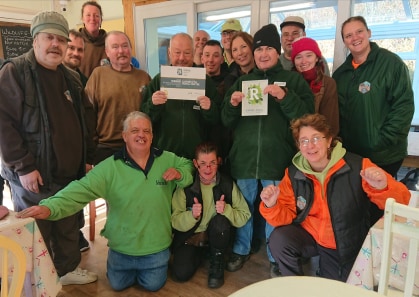
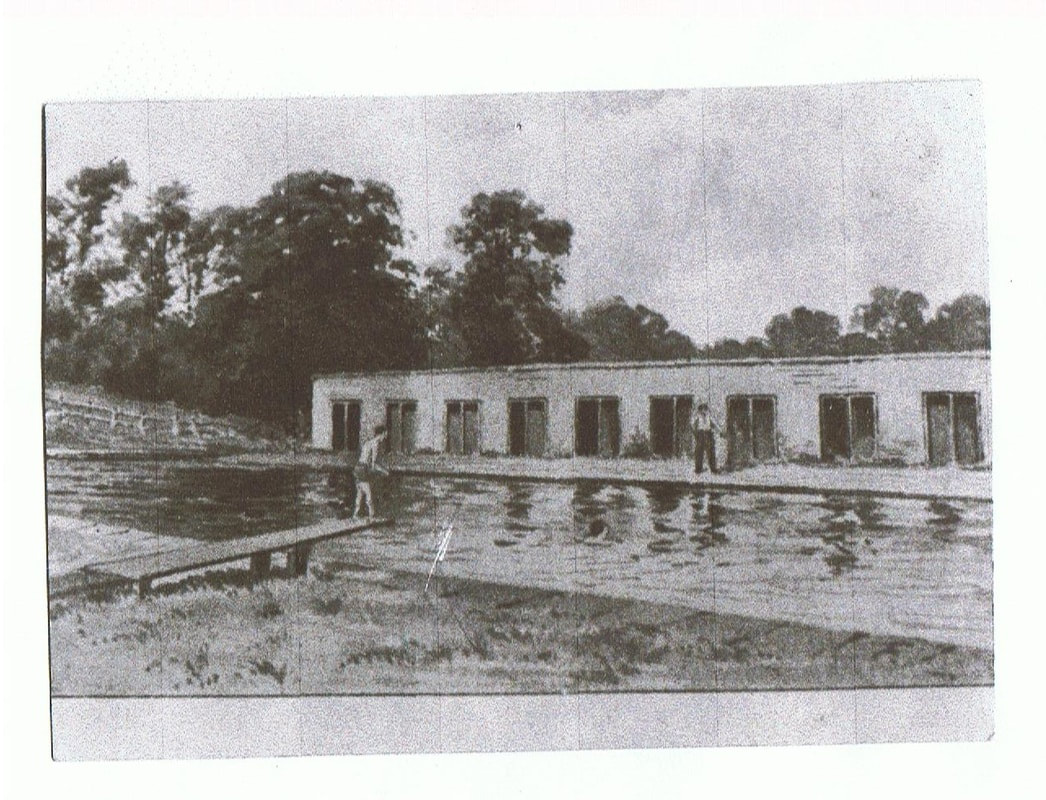
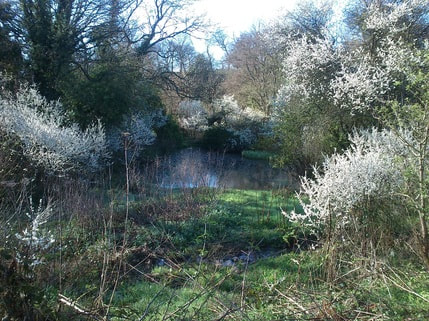
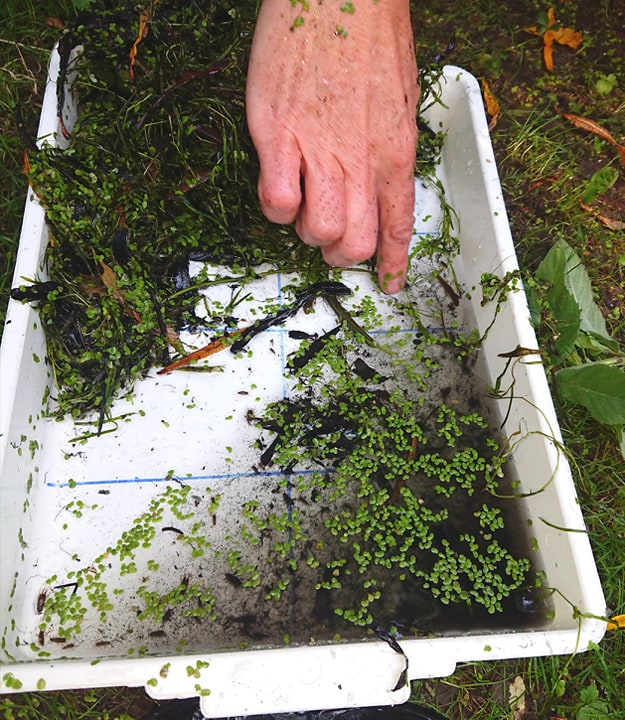
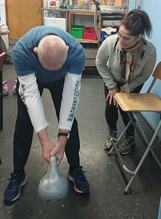



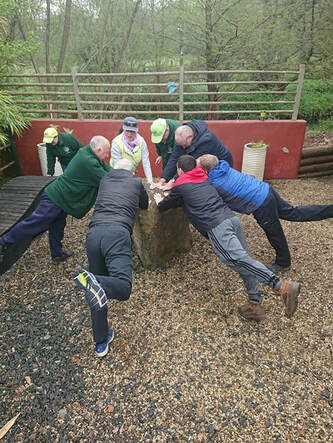
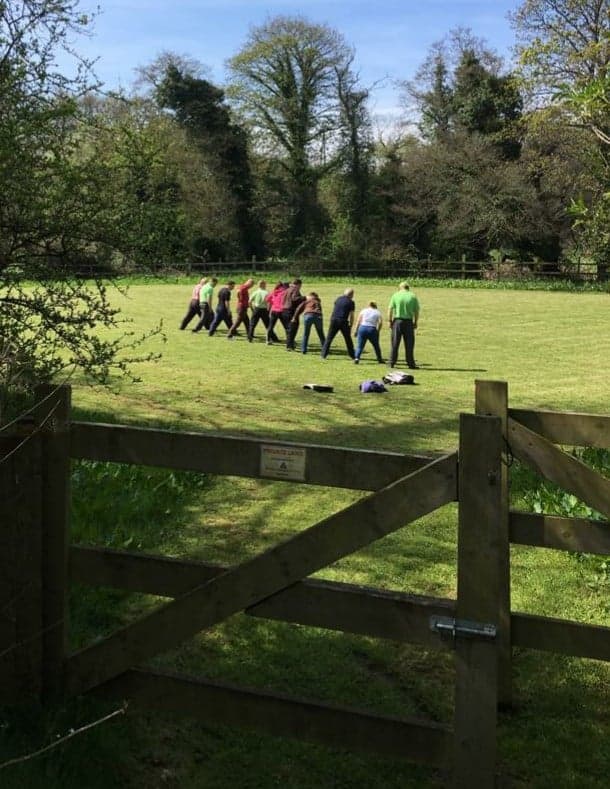
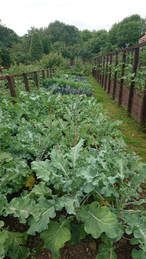
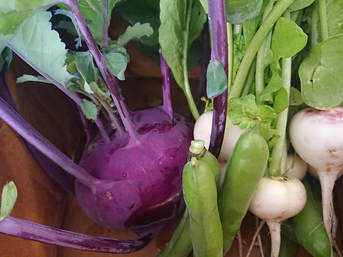
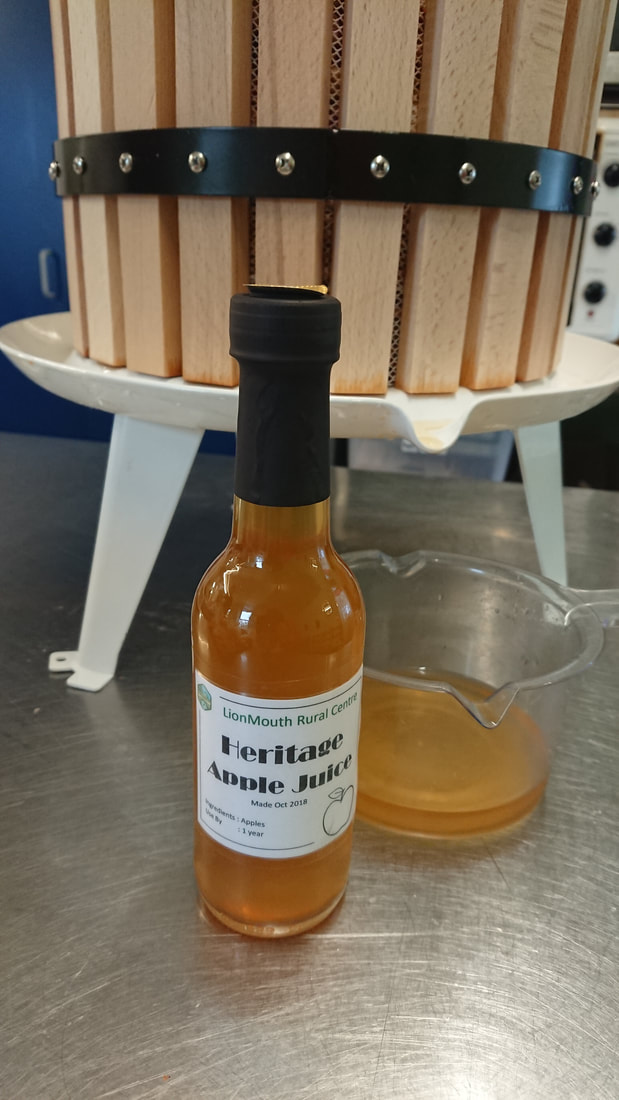
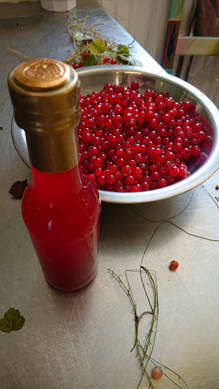
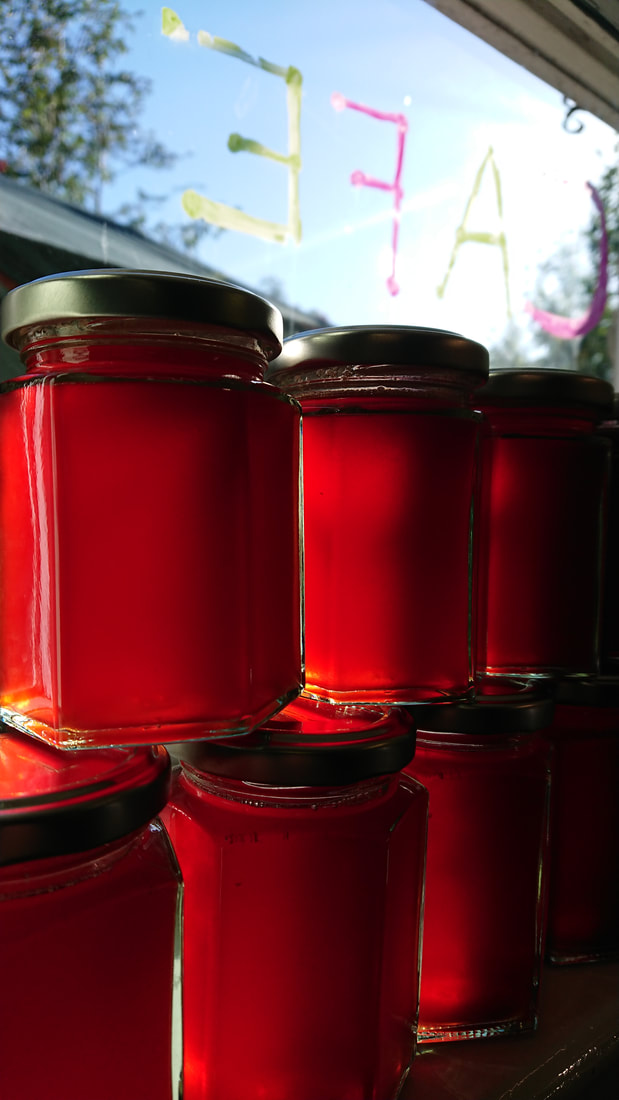
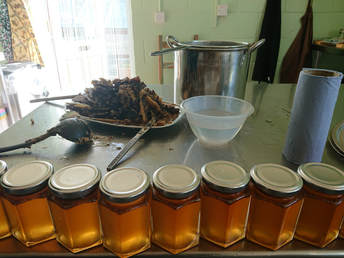
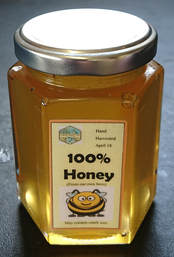
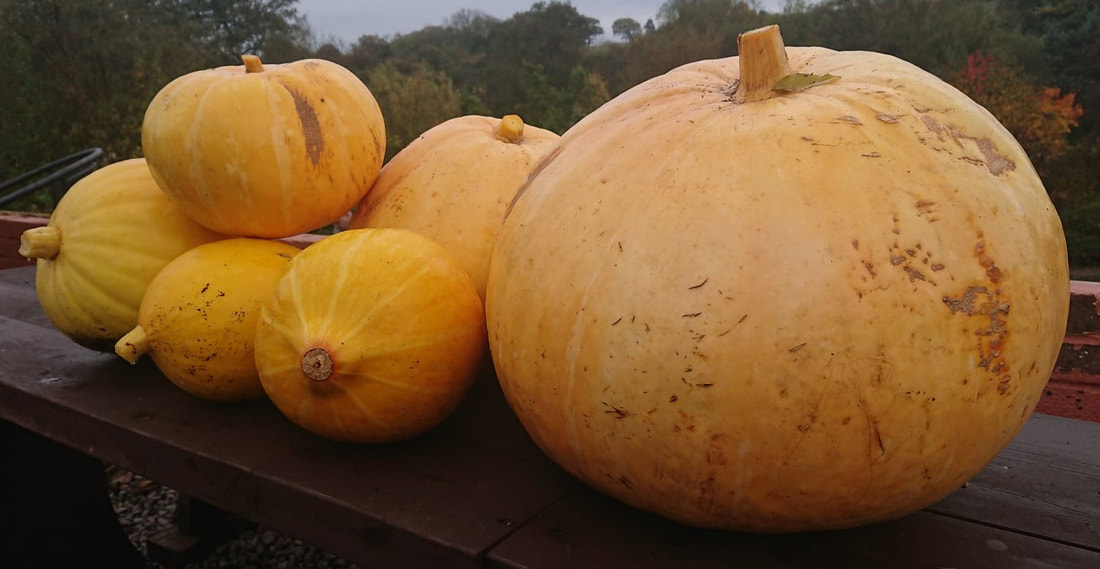
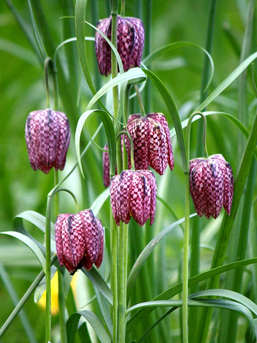




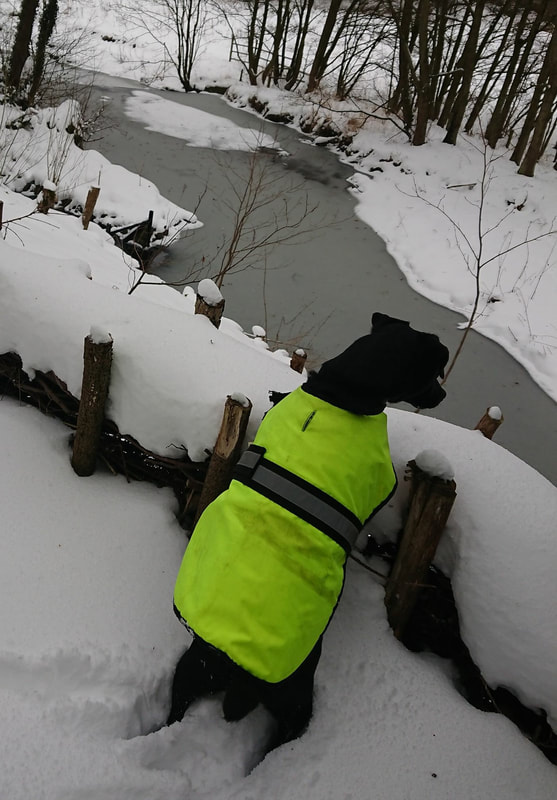
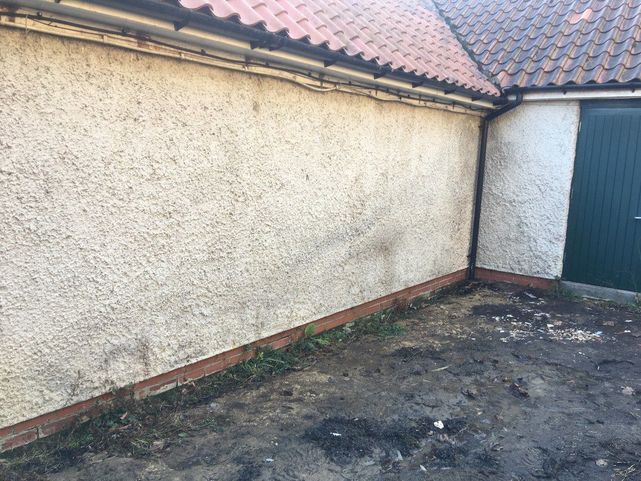
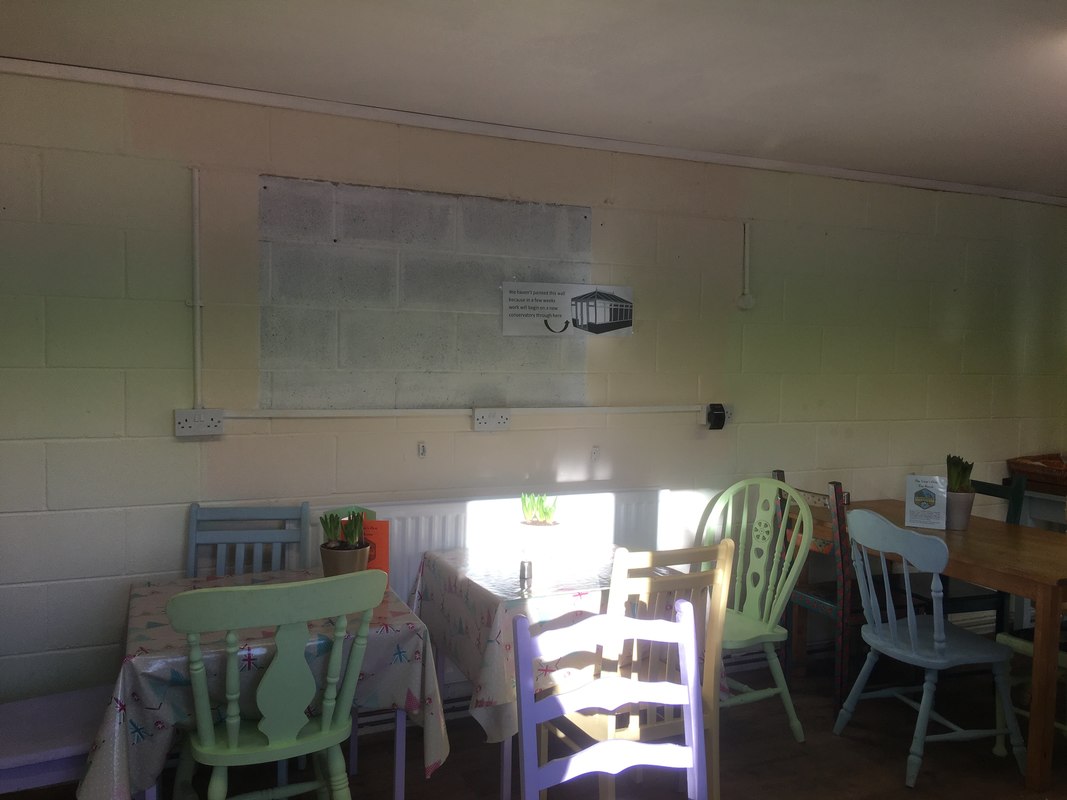

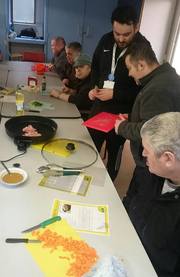
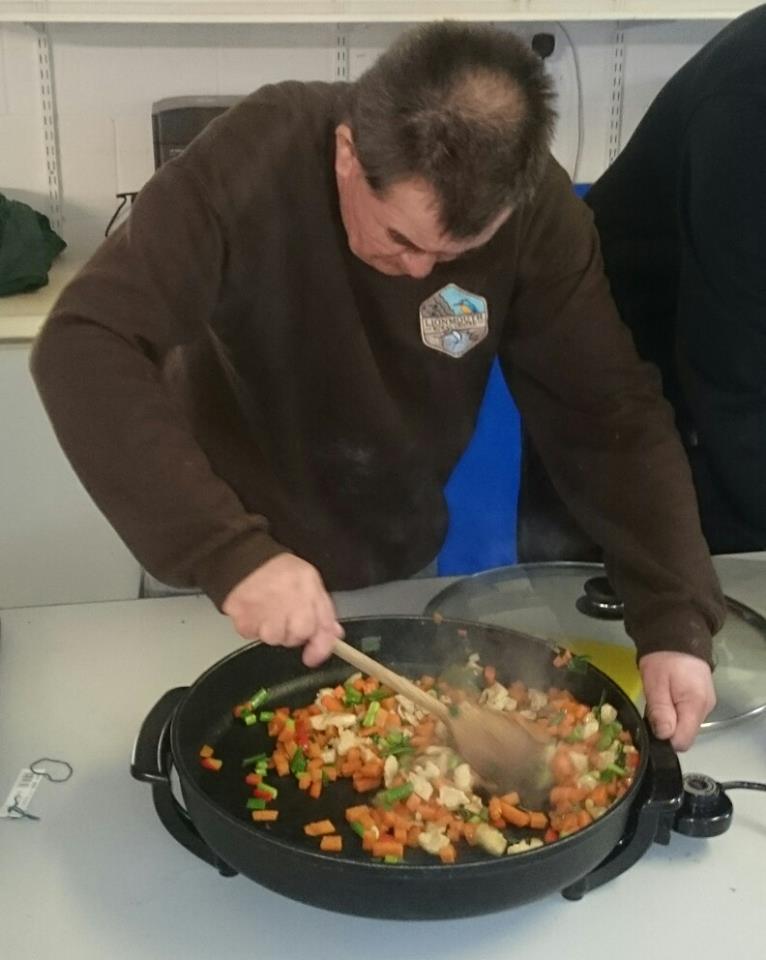

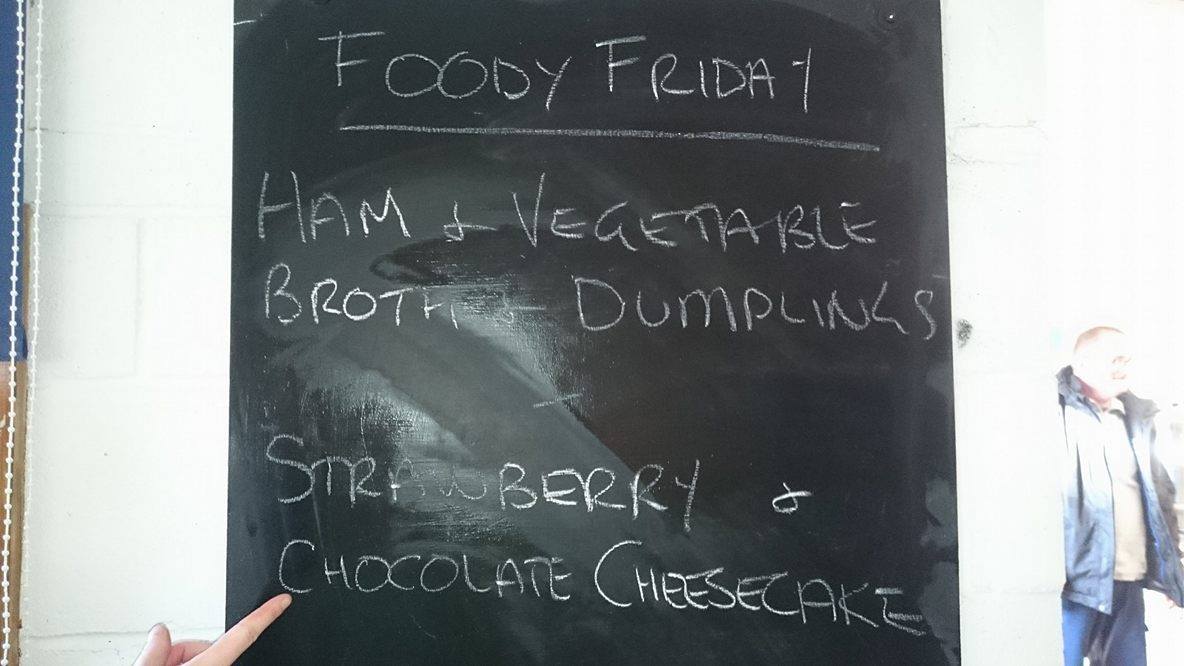
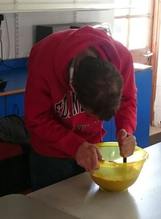
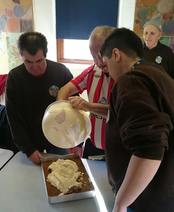
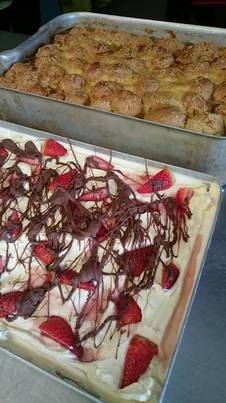
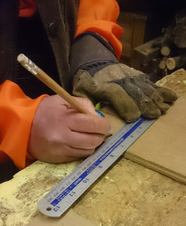
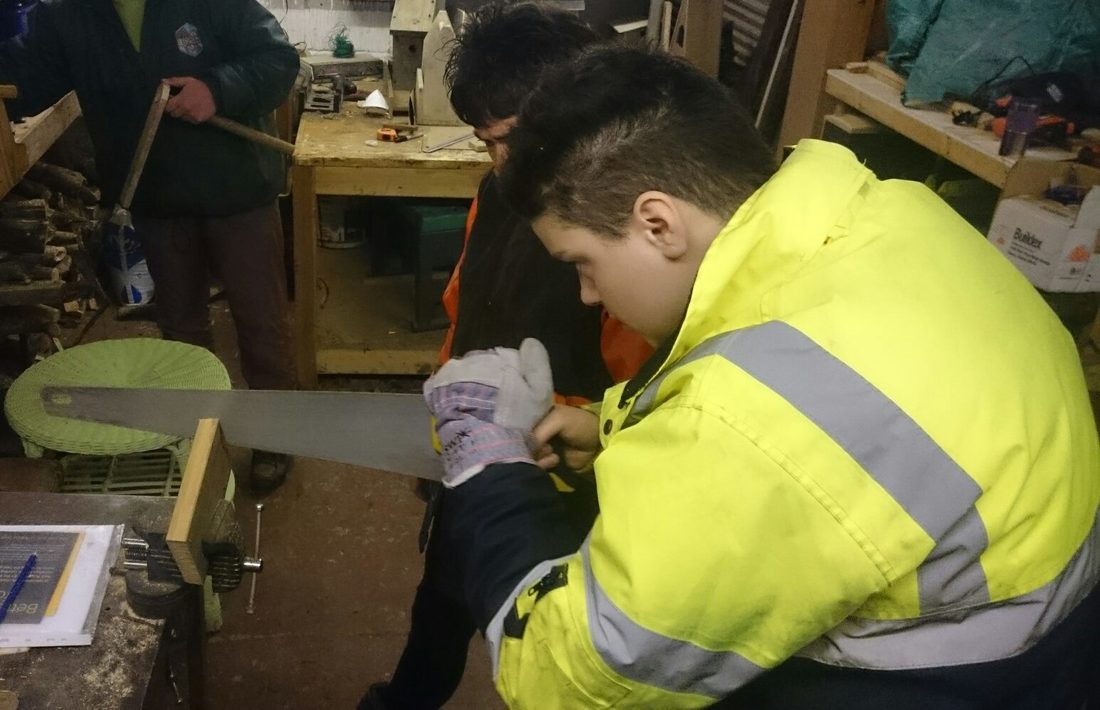
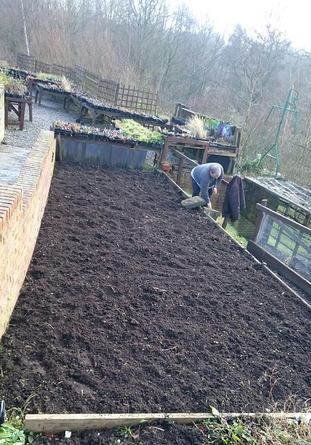
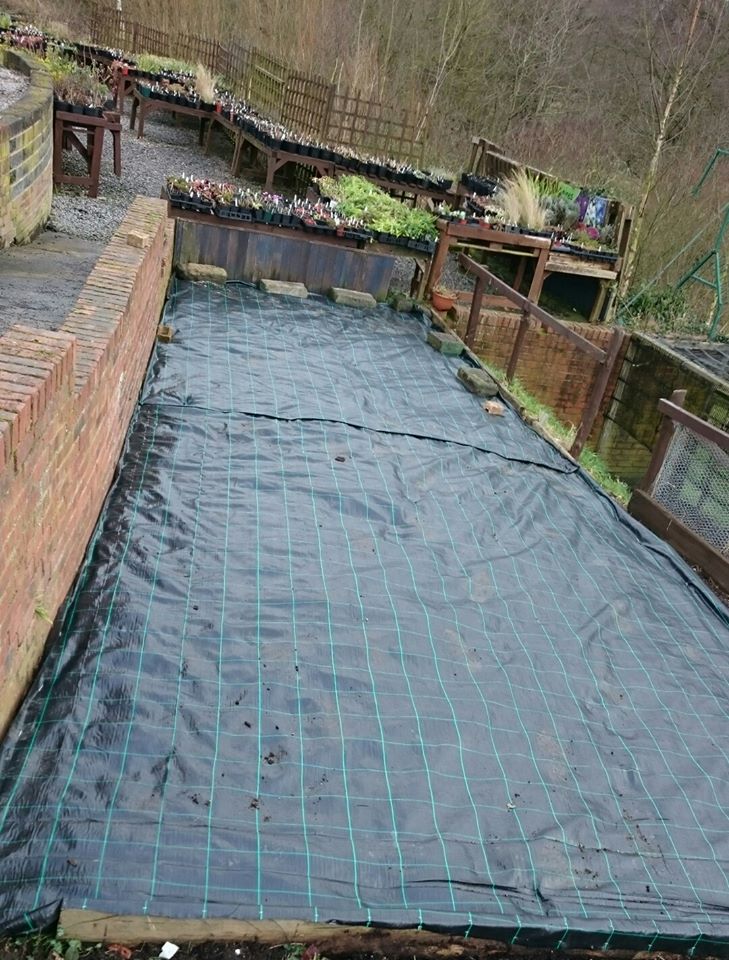
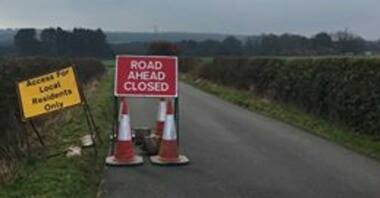


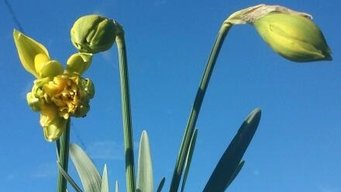
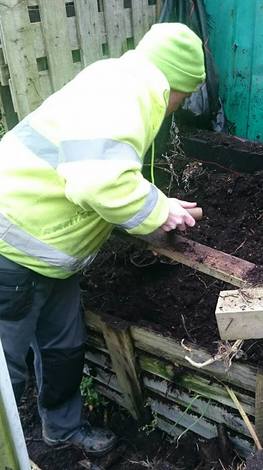
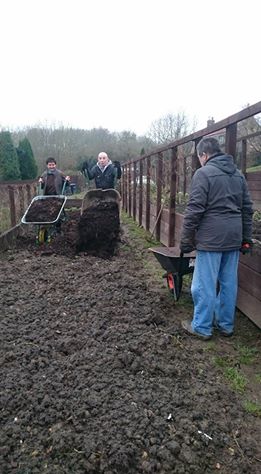


 RSS Feed
RSS Feed